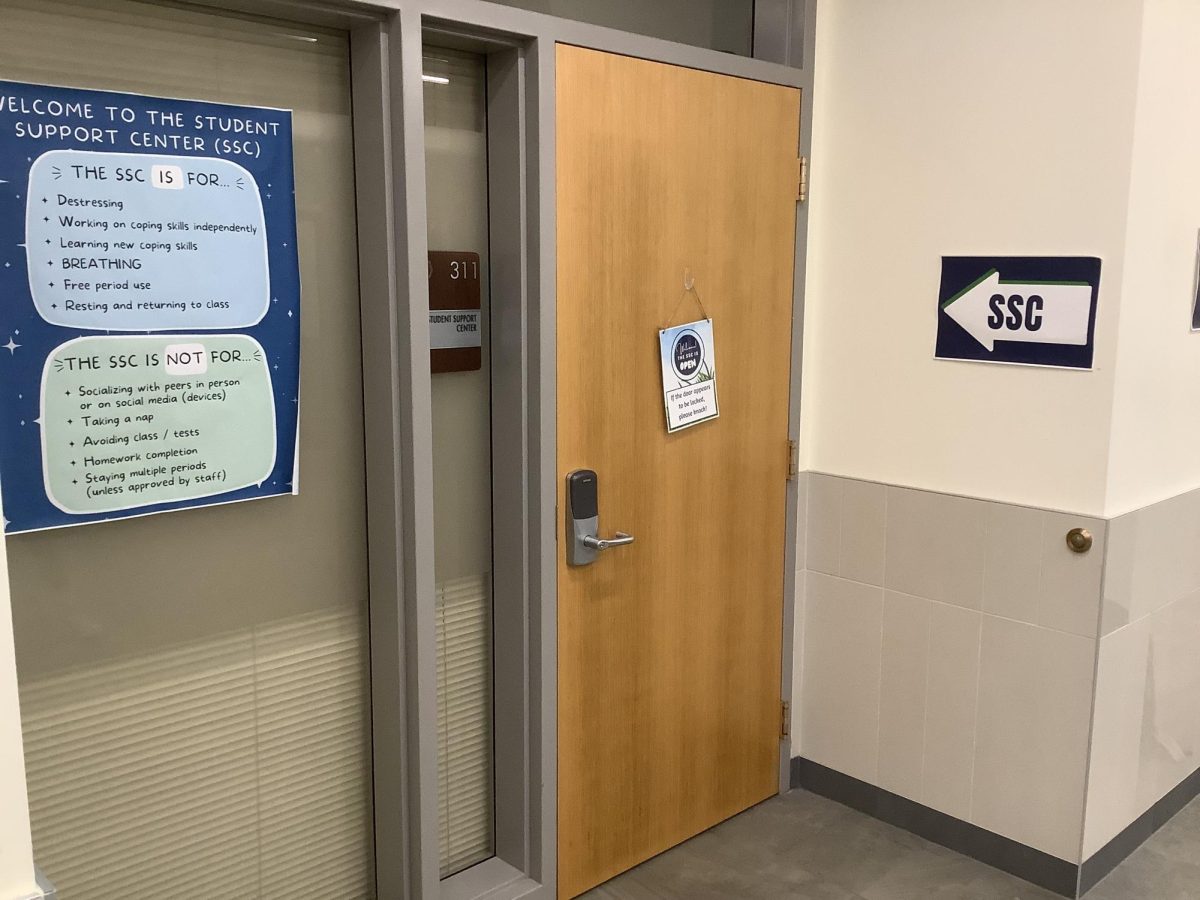More and more teenagers are facing problems with their mental health. According to the National Institute of Health, “Nearly 20% of children and young people ages 3-17 in the United States have a mental, emotional, developmental, or behavioral disorder.” Luckily, New Trier has many resources to help teenagers improve their mental health.
New Trier students have access to resources for mental health across both campuses. There are places like the Student Support Center in room 311, dedicated to helping students find support in times of need. There are social workers ready to help students and places to practice coping skills too.
“When I felt stressed out about school, like feeling overwhelmed with homework and tests, I went to the [SSC] to try and see if it could help me work through my issue and calm me down,” junior Sofy Barba said. “I thought it was pretty helpful. Speaking with the people working there, it was kind of a relaxing space.”
Barba felt as though the Student Support Center was a good resource for what it was. Especially because they have many options for things to do that don’t involve talking directly to people, like providing a quiet space to focus and relax.
Tiffany Myers, Social Work Department Chair, believes that it is important for students to know what resources are available to them at school.
“We want to make sure everyone has a baseline understanding of what mental health is and the importance of taking care of yourself and understanding mental illness,” she said.
New Trier health class and advisery try to make students aware of the importance of mental health and what resources are available. The Social Work Department then comes in when students identify that they are facing challenges relating to the mental health problems discussed in these classes or elsewhere.
Oftentimes, people have the misconception that these resources are of little use, and avoid them, thinking they won’t be of help. However, these tools are designed to help students, offering up a space to go to in times of need.
“We noticed that students didn’t necessarily need someone to talk to, but they needed a space to regulate, to practice coping strategies, and so we wanted to open that space so students could go there and do those things,” Myers said.
There are also countless clubs, groups, and organizations dedicated to improving the health of teenagers at New Trier.
“Mangoes is for students who have lost a parent or sibling, we have a group for students who have experienced chronic physical health conditions, we have a group for students who have a family member who struggles with substance abuse, a group for students with a sibling with high level special needs, and there are more,” Myers explained.
Other support groups offered are Pickles, for people with parents or other family members struggling with cancer, which meets bi-monthly. SAMS (Stress and Anxiety Management Strategies) is a group that provides knowledge on how stress and anxiety can impact physical and mental health, along with skills to help control the stress and anxiety students face. The Empower group is for students who have been in unhealthy or abusive intimate relationships in the past and how to cope with that.
These groups are need-based that run when several people have shown interest. They meet weekly during different periods of the day. For extra information, people can stop by room 225 at Winnetka, room B230 at Northfield, or email Social Work Department assistant Brooke Collins at [email protected].
There is also a club offered called Erika’s Lighthouse Mental Health Awareness Club, dedicated to reducing stigma around mental health, raising awareness for mental health issues, and participating in fundraisers for mental health. They meet Thursdays after school in room 305 at the Winnetka Campus.
Students are surrounded by ways to seek help for their mental health and learn the importance of taking care of themselves, especially in times of crisis. There are places for everyone to get help as they need and the school is always trying to improve to support students better. Any issue a student might have, there is surely a resource to help.
“We’re constantly evaluating what we’re doing to help us understand what students need and how to support them,” Myers said.






































